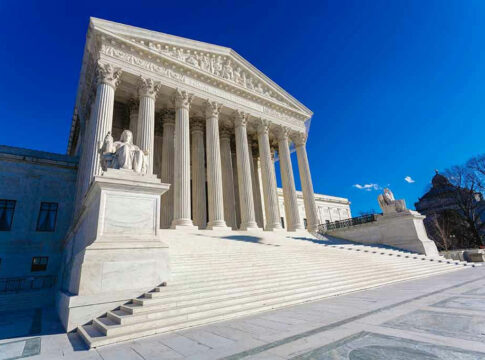Mayor Bowser’s stunning reversal—crediting President Trump’s federal crime crackdown for saving D.C.—signals a major defeat for leftist soft-on-crime policies and a powerful victory for law and order advocates.
Trump’s Federal Crime Crackdown: A Turning Point for D.C. Safety
On August 11, 2025, President Donald Trump responded to Washington, D.C.’s persistent violent crime surge by deploying National Guard troops and placing the Metropolitan Police Department (MPD) under federal oversight. This decisive action, rarely seen in American cities, followed years of failed local attempts to curb spiraling homicides, robberies, and especially carjackings. For decades, D.C. had struggled under progressive leadership, with its 2024 homicide rate nearly six times higher than New York City’s. The Trump administration justified the intervention by citing the city’s inability to protect its residents and restore order.
Within weeks of the federal surge, crime statistics revealed seismic changes. D.C. experienced an 87% drop in carjackings during the 20-day period compared to the previous year. Violent crime overall fell to its lowest point in thirty years, with total incidents down 35% from 2023. Multiple federal agencies—including the FBI, DEA, ATF, U.S. Park Police, and Capitol Police—joined the National Guard to supplement local law enforcement. Official data from the MPD and Department of Justice confirmed these dramatic reductions, directly correlating with the presence of federal and military personnel on city streets.
Mayor Bowser’s Reversal and the Exposure of Failed Policies
Initially, Mayor Muriel Bowser condemned the federal takeover as an “unsettling and unprecedented” breach of local autonomy. However, as the crime wave receded, Bowser was compelled to publicly acknowledge the effectiveness of Trump’s intervention. She stated, “We greatly appreciate the surge of officers that enhance what MPD has been able to do in this city… this surge has been important to us for that reason.” This admission represents a stark repudiation of the city’s prior leniency and a validation of the conservative argument that tough, decisive enforcement—not endless “community initiatives”—restores public safety.
Bowser’s reluctant praise, however, was qualified by complaints about “community trust” and the tactics used by out-of-state National Guard troops. She also criticized the deployment of masked ICE agents and continued to call for more local resources. Yet, the data speaks for itself: the federal approach succeeded where local progressive policies repeatedly failed, exposing the inherent risks of prioritizing ideology over results.
Constitutional Implications and Concerns Over Federal Overreach
The federal government’s direct assumption of local police powers, while effective in this instance, has sparked important debates. Some experts warn about the precedent set for federal intervention in traditionally local matters, raising constitutional questions about the balance of power. Proponents argue that in times of crisis, the first duty of government is to protect its citizens—an obligation left unfulfilled by D.C.’s prior leadership. The Trump administration’s willingness to use all available resources restored order but also highlighted the failures of those who resisted proven law enforcement strategies in favor of progressive experiments.
Bowser’s unease about federal involvement reflects deeper tensions between local autonomy and the necessity for higher authority to step in when basic safety is jeopardized. For conservatives, the lesson is clear: strong leadership and unwavering commitment to the rule of law can reverse even the most entrenched urban crises and restore hope to communities neglected by leftist policies.
Lasting Impact: A Blueprint for Other Cities?
D.C.’s turnaround under federal control has sparked national discussions on whether similar interventions could rescue other cities plagued by crime and failed progressive governance. For families and law-abiding citizens, the outcome in the nation’s capital shows that surrendering to chaos is not inevitable. By holding firm to constitutional values and demanding accountability, America’s leaders can reclaim public safety and restore faith in their government. As D.C. residents enjoy newfound security, the Trump administration’s approach stands as a powerful rebuke to those who would sacrifice safety for politics—and a warning to any city ignoring the basic rights of its citizens.
DC Mayor Bowser reverses course, admits Trump's federal crime crackdown is working https://t.co/jXTJF1PUE0 #FoxNews
— Michael R Peacock (@mikepeacock09) August 28, 2025
While some critics voice concerns about long-term community relations, the undeniable drop in crime and public gratitude for restored order signal a clear victory for the principles of law and order. The events in Washington, D.C. may serve as a template for future federal action if local leaders fail in their primary duty: protecting American lives and upholding the Constitution.
Sources:
White House Fact Sheet, August 2025
Metropolitan Police Department Crime Data, August 2025
Council on Criminal Justice, August 2025
Department of Justice, January 2025

